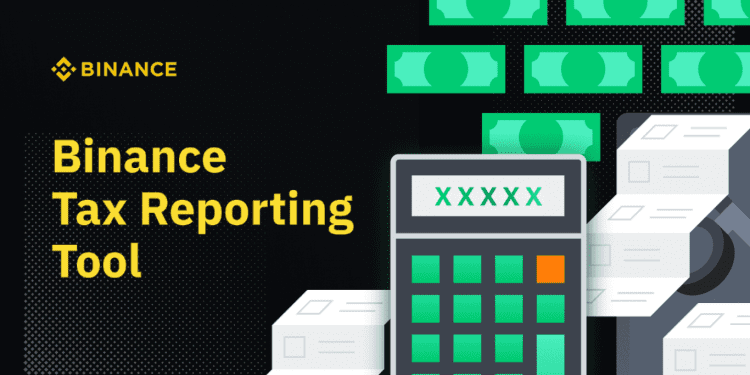- Binance Tax will let users calculate their taxes on trade made on the platform.
- The new feature is only available in France and Canada.
- Crypto exchanges have begun to adhere to specific countries’ tax policies.
The crypto industry is gradually transitioning from unregulated territory to being recognized as a well-defined regulated asset class. With the impending regulations, there will be clarity on tax rules.
Tax season is quickly approaching in many countries, so companies in the cryptocurrency industry must be prepared to assist their users in complying with local regulations. However, traders find it time-consuming to manually track trades and calculate profits and losses for tax purposes.
On February 6, Binance announced the launch of a new tax reporting tool – Binance Tax, to assist users in keeping track of their crypto transactions for tax reporting purposes.
According to the announcement, the new feature will permit users to download a tax summary report that includes any gains or losses in their Binance account throughout the year. The new tool allows users to report up to 100,000 transactions to calculate taxes. This includes spot trades, cryptocurrency donations, and blockchain-based fork rewards. However, the algorithm does not allow users to report certain types of transactions, such as futures and options trades.
The company noted that this is in response to an increasing number of inquiries from users about their tax liabilities.
Binance Tax is only available in Canada and France
Binance Tax is currently being tested in France and Canada before being expanded to other global markets in the Binance ecosystem later this year.
It is currently only available for information held on the Binance platforms, but it says it plans to expand to integrate with other industry platforms.
This comes just one month after Binance announced its participation in an organization addressing global sanctions compliance.
Global regulators have tightened their grip on the crypto industry over the last year, particularly in the aftermath of the FTX crisis, which shook the industry.
Thailand’s Securities and Exchange Commission recently announced plans to tighten crypto industry regulations with an emphasis on investor protection. Exchanges have been targeted in probes by regulators in both South Korea and the Netherlands for noncompliance with local standards.
The crypto scene has also piqued the interest of US regulators. Due to compliance violations, the cryptocurrency exchange Kraken had to settle with the Treasury Department’s Office of Foreign Assets Control.
The United States Securities and Exchange Commission requested that firms disclose their exposure to crypto bankruptcies and risks by December 2022. Meanwhile, a House committee chair reintroduced a bill on crypto innovation that would allow businesses to apply for an “enforceable compliance agreement” with federal agencies.
Exchanges that are Complying with Crypto Taxes
As taxation becomes more defined, exchanges must adhere to a specific country’s tax policies. In 2023, Italy will begin levying a 26% tax on crypto gains of more than €2,000. Several cryptocurrency exchanges have obtained operating licenses in Italy, including Gemini, Nexo, Binance, Coinbase, and Crypto.com.
India has a 30% flat tax on cryptocurrency gains and a 1% tax deduction at source (TDS). The Indian exchanges deduct 1% of the total amount for each sell transaction and pay it to the Income Tax Department. For example, if a user sells 100 INR worth of cryptocurrency, they will receive only 98.75 INR after deducting TDS and exchange fees, as shown in the screenshot below.
According to recent announcements, citizens who fail to pay TDS may face up to six months in prison.














